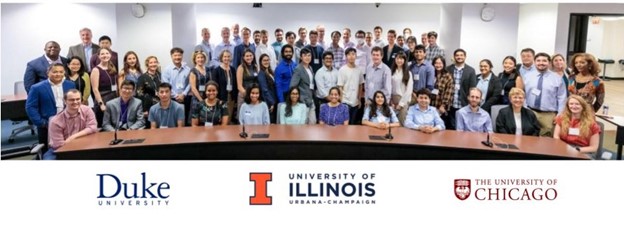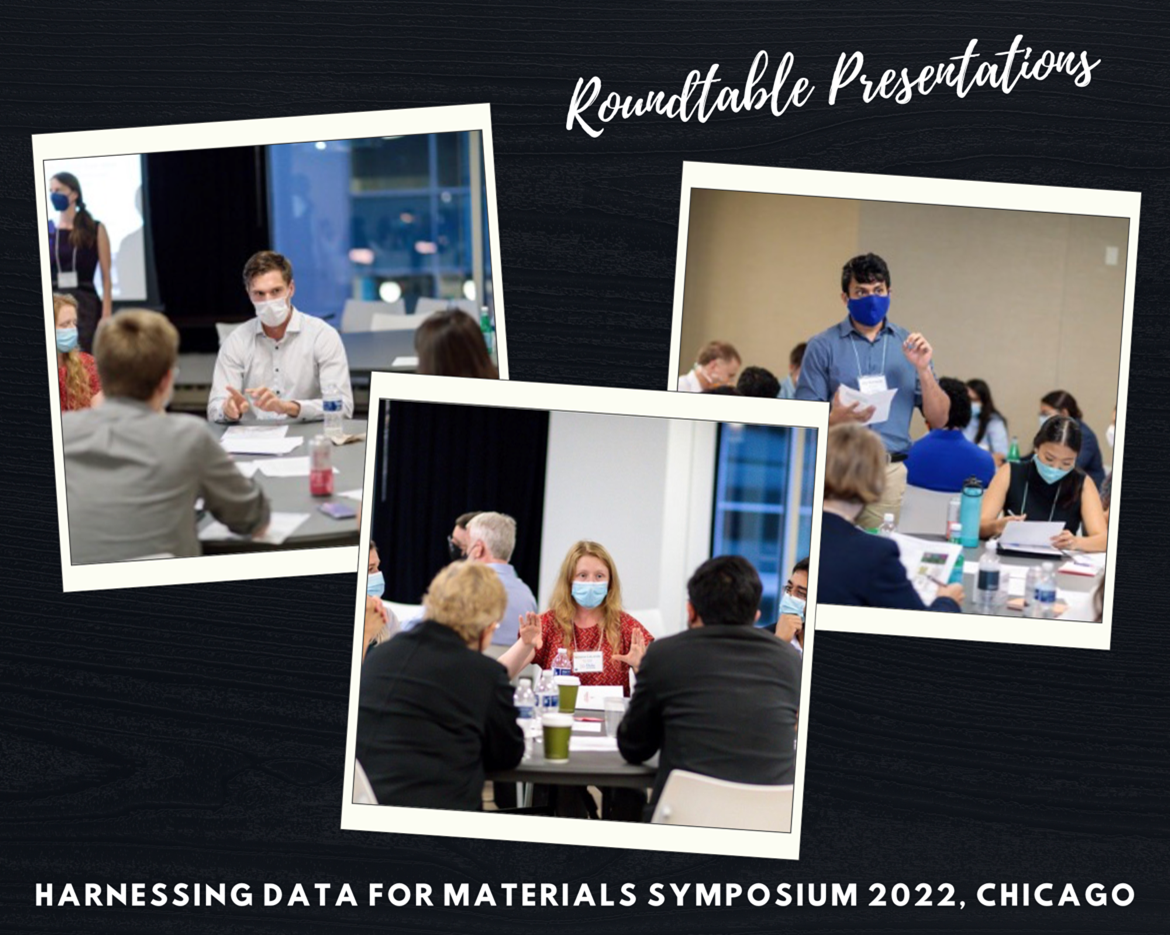Harnessing Data for Materials Through Collaboration
By Shana McAlexander
Joint NRT Symposium Chicago 2022 saw aiM trainees and project leaders combine for a three-university collaborative event

Responding to the NSF Big Idea, Harnessing the Data Revolution (HDR), the Harnessing Data for Materials Symposium 2022 brought together over 80 scientists and engineers, including graduate students, faculty and staff, evaluators, and industry and national lab partners to share knowledge and develop new research collaborations at the intersection of machine learning and materials science.
During the collaborative two-day event on August 29-30, the symposium participants engaged in numerous interactive sessions. Trainees shared their ongoing research projects during roundtable presentations and three-minute lightning talks. A panel of representatives from industry and national labs answered student questions about the state of the workforce and practices that would help them pursue careers and internships. In a culminating session on Team Science, seven cross-institutional, interdisciplinary student teams drew from their complementary interests and expertise to rapidly develop research project ideas and present their proposals to the full group. All symposium participants were able to make new connections and better understand how their research efforts align with their peers and the larger goals of the science and engineering community.
“Sharing research and bouncing ideas off of people from other institutions was incredibly enriching,” said Winston Lindqwister, a CEE PhD student at Duke. “It gave me a great low-stress opportunity to practice presenting my ideas!”
“This was a powerful and dynamic workshop, with ample time for all attendees to connect formally and informally,” added Cate Brinson, PI and aiM director, as well as chair and professor of MEMS at Duke. “New nascent research collaborations were forged and several concrete follow-on projects are being actively pursued to provide even greater discoveries at the intersection of AI and materials.”
“Sharing research and bouncing ideas off of people from other institutions was incredibly enriching. It gave me a great low-stress opportunity to practice presenting my ideas!”
winston lindqwister
This event is one of many professional development experiences for graduate students participating in Duke University’s five-year, National Science Foundation Research Traineeship program to develop expertise in using AI for materials science research. The aiM (AI for Understanding and Designing Materials) Program fulfills a vital workforce gap by training the next generation in the new convergent field of materials and computer science research.
“After two years of remote conferences, we couldn’t anticipate how excited everyone would be to engage in-person!” said Shana McAlexander, aiM associate director. “The three university programs really complement each other.”

The aiM Program is seeking PhD students to join the 2023 cohort to engage in interdisciplinary work using scientific machine learning to accelerate understanding and discover new materials that address global challenges across many sectors, including the energy sector (e.g., battery technology), transportation (e.g., lighter weight aerospace materials), health care (e.g., drug delivery devices, soft-tissue imaging, and implant materials), and many more areas. Current and prospective Duke PhD students in engineering, physical sciences, computer science and related departments are eligible to apply. The program has a masters and doctoral certificate in development.
To learn more about aiM, check out the program website https://aim-nrt.pratt.duke.edu/ or contact Shana McAlexander, aiM Associate Director at shana.mcalexander@duke.edu.
This work was supported by the National Science Foundation under grant DGE-2022040.
